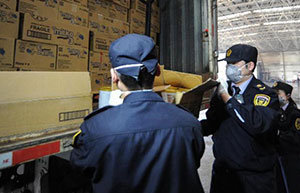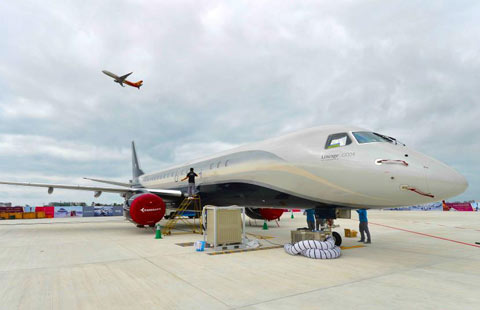Cashing in on Internet Protocol Television
By Gao Yuan (China Daily) Updated: 2014-04-03 11:27
|
Q&A|JONHWANG Q: What was your first job? A: I worked as a software engineer more than 20 years ago at VSC, a Sino-Japanese joint venture. The company is still in operation. What decision do you most regret after joining Avaya? It's hard to say which one I most regret. I always review my work in order to make better decisions in the future. What do you think has been the most challenging job in your career? I faced many challenges in different positions. Some of them were more precise issues during my time as an engineer. Most of the challenges I am handling today require me to master a wider range of knowledge from sales to products. Which entrepreneur do you think is the leader in global and Chinese tech industries? The late Steve Jobs was definitely a pioneer. As for China, I don't know who really fits this position, although Shi Yuzhu, chairman of online gaming company Giant Interactive Group Inc, could be a legitimate candidate. I admire those who are able to rise in the face of adversity. How do you spend your leisure time? I love to read. Sometimes I do a little sports as well but the most enjoyable time is always when I am with my family. |
"The Chinese market has fully embraced the 'mega' trends in modern IT," said Wang.
"Technology such as cloud computing and big data has become the engine to push China's innovation as well. WeChat, a popular instant messaging application, is a vivid example of how Chinese companies lead industry by taking advantage of technology."
Avaya is looking to further strengthen its research and development capabilities in China in a localization process using its innovations and services. The company did not disclose details of the plan but Wang emphasized localization is one of the priorities of the company in China. This involves localization of the team, products and applications to better meet the needs of local customers.
Unlike Wang's first job as an engineer at a Sino-Japanese joint venture, his current employment requires a much stronger ability to look at the bigger picture, from service and sales to channels across the entire China market.
"It's a challenging job but also very intriguing for me," Wang admitted.
Prior to joining Avaya, Wang was vice-president of Cisco Systems' China channel sales unit
Wang always tries to reduce his off-work schedule to a calmer and slower pace - a lifestyle worshiped by traditional Shanghai culture.
Although he is working for a company that always underlines the importance of communication, Wang likes to spend some time alone to enjoy a short period of peace.
Walking and swimming, the top two sports that involve the least amount of speaking, are Wang's ways of avoiding his daily business tasks.
"I am also a devoted reader," Wang said. "But I feel sad that I don't have much time to read nowadays because of my increasing workload."
China's booming demand for next-generation communications technology is a focus of the government over the next several years, officials and experts said.
Mao Weimin, vice-minister of the Ministry of Industry and Information Technology, said IT-related sectors including broadband Internet, telecom infrastructure and services will be under the Central government's direct oversight.
The annual turnover of China's information technology and telecommunication industries is set to hit $602.3 billion by 2020, according to the ministry's forecast.
|
 |
 |
- Alibaba's IPO architect lays out blueprint
- Real land reform requires more than words
- JD.com restructures in advance of IPO
- Spoiled infant formula with tampered dates burnt
- China's non-manufacturing PMI drops
- China announces economic package
- Proposed national real estate system gets boost
- Henan investment fair attracts big crowd

















